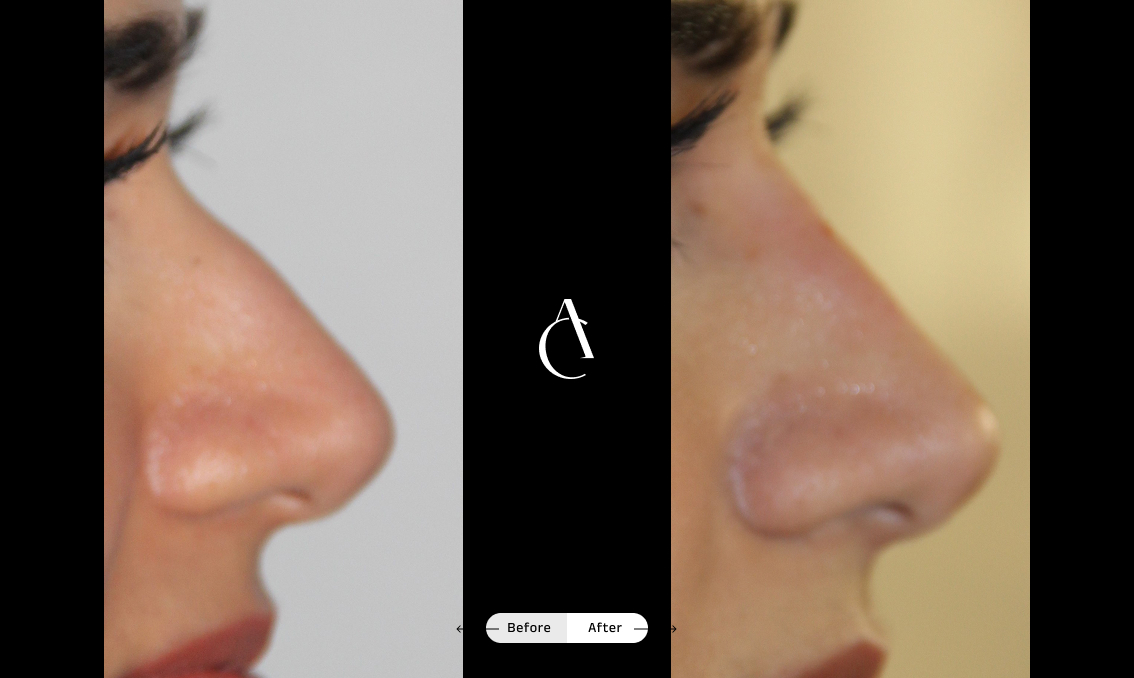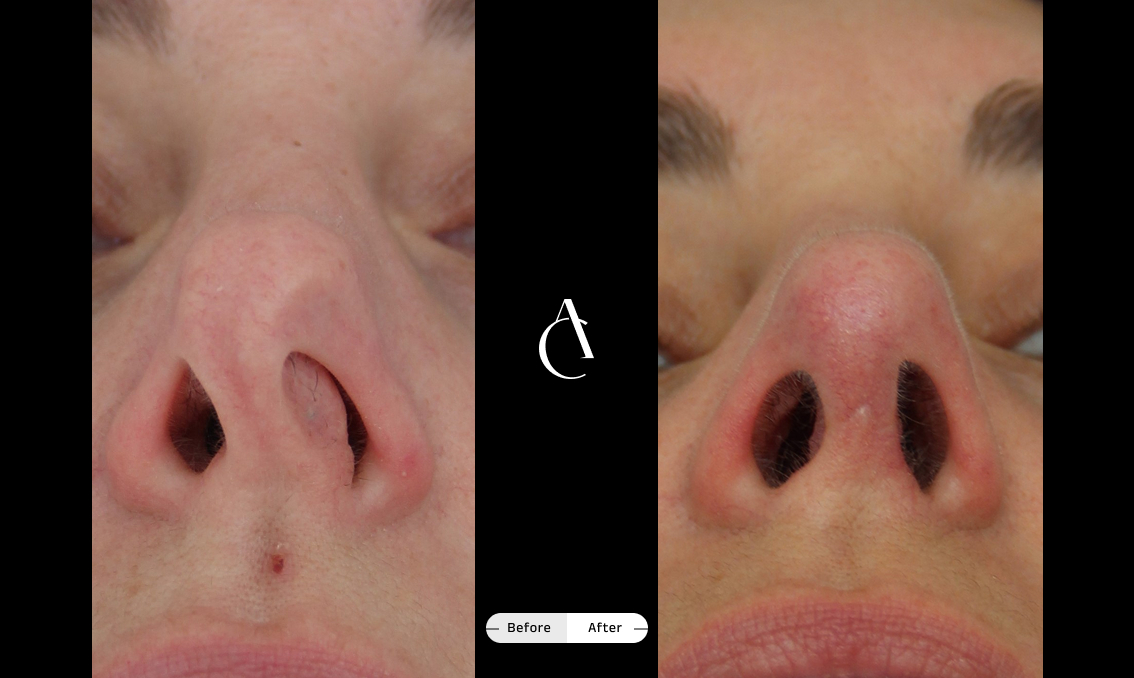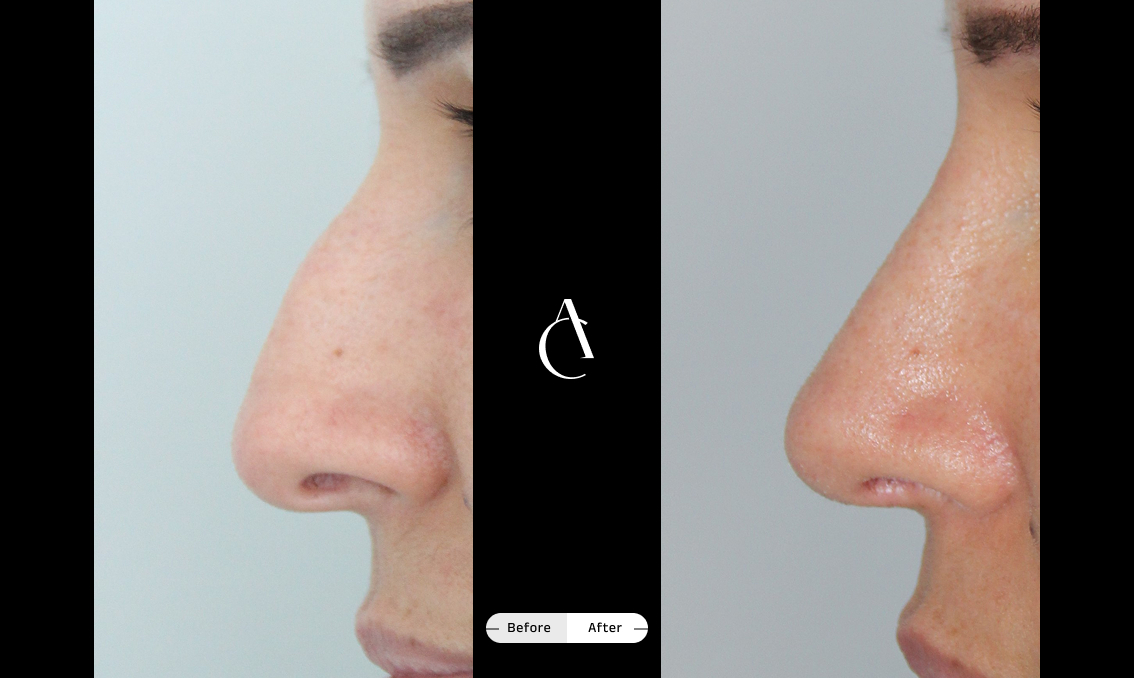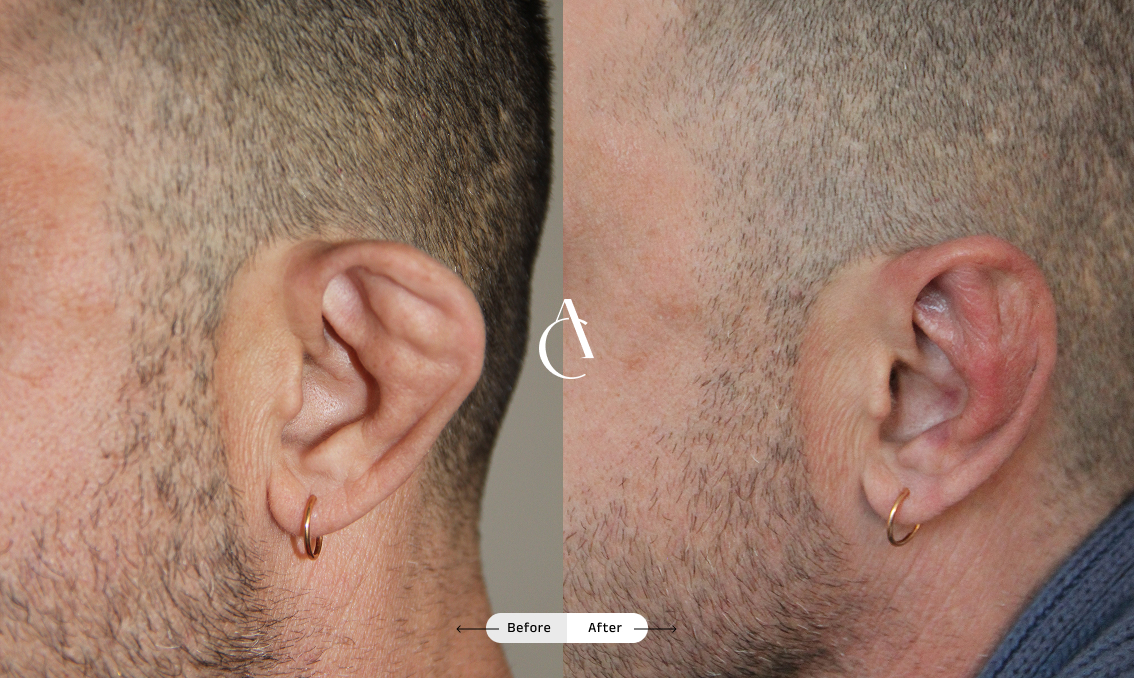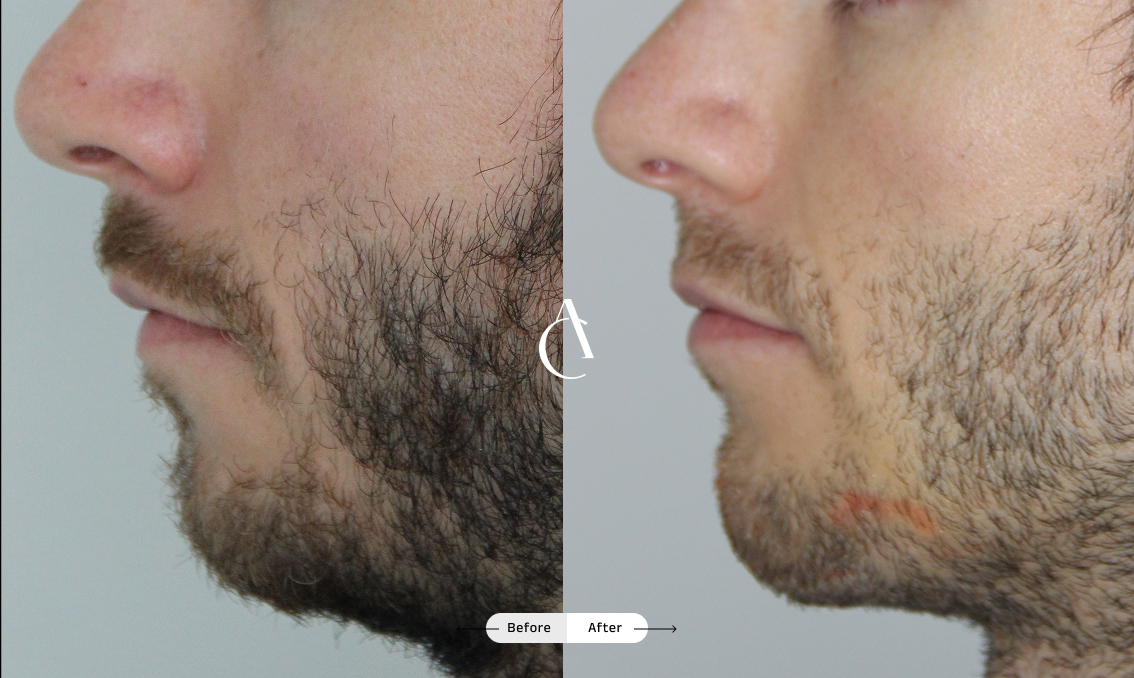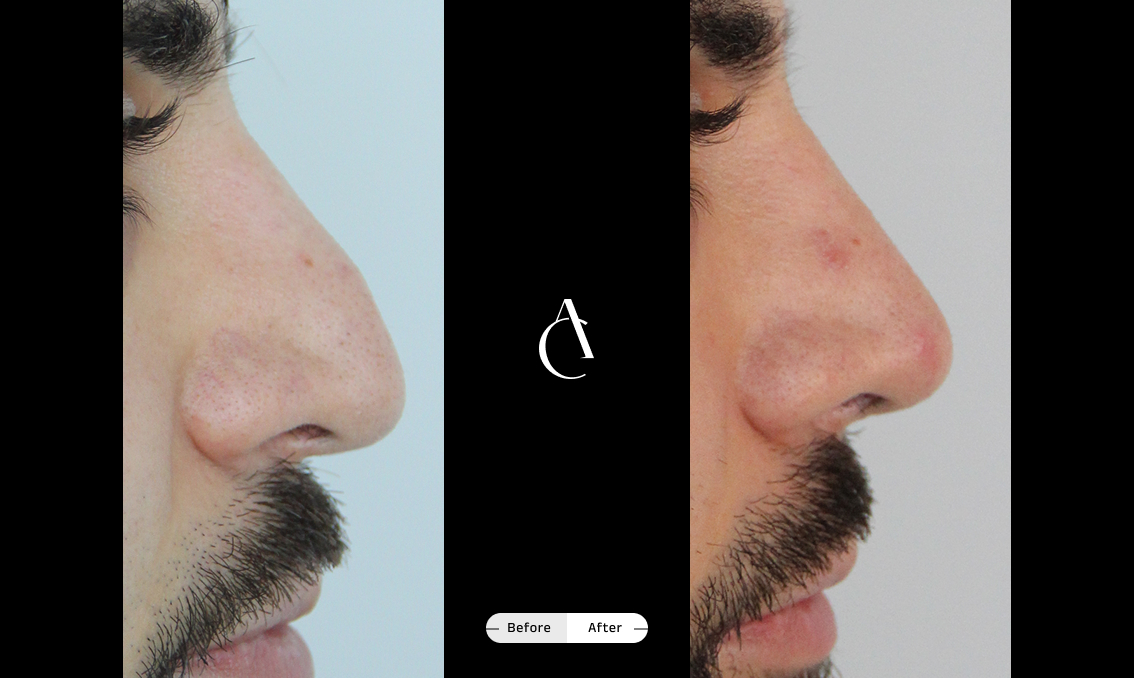Luckily, advances in surgical techniques and post-op care mean that most patients find their experience of the procedure less painful than they were expecting, with feelings of soreness, pressure or congestion instead of sharp pain. Let’s take a look at what you can expect in more detail.
Is a nose job painful during the surgery itself?
You won’t feel any pain during the rhinoplasty procedure. Some surgery is conducted while you’re asleep under general anaesthetic, in which case you’re completely unaware of what’s going on. If your surgeon opts to use local anaesthetic, you’d only feel a pressure sensation rather than pain – and you’ll usually be sedated so that you feel relaxed.
How painful is rhinoplasty recovery in the first week?
Perhaps unsurprisingly, the first week after rhinoplasty surgery is the time you’ll experience the most discomfort. However, it’s usually more like a congested feeling and facial tightness rather than intense pain – more like a heavy cold or sinus infection – and you’ll notice tenderness, bruising and swelling around your nose and eyes. Most patients can deal with this effectively with painkillers, and your surgeon will advise you on how to stay as comfortable as possible.

Image source Freepik
What type of pain is common after rhinoplasty?
After rhinoplasty surgery, you’re likely to experience sensations such as:
- Throbbing or aching around your nose
- Tenderness to the touch
- Headaches due to sinus pressure
- Swelling and bruising around your eyes, which may bring a feeling of heaviness
You can expect these symptoms to gradually improve throughout the first week, and particularly when the swelling starts to subside.
How long does rhinoplasty pain last?
Pain after rhinoplasty doesn’t last long, and there’s a predictable timeline:
- Days 1 to 3: your nose feels at its heaviest and most uncomfortable, but you can manage it with painkillers.
- Days 4 to 7: the swelling starts going down, so discomfort should ease and you shouldn’t need as much pain relief.
- Week 2 and beyond: you’ll likely feel only mild sensitivity or occasional pressure, with minimal discomfort.
By the end of the second week, you’re unlikely to feel pain or discomfort.
Is rhinoplasty more painful than other facial surgeries?
Although the bruising and swelling can look dramatic in the first week, rhinoplasty isn’t considered highly painful compared to other facial procedures, such as a face or brow lift or eyelid surgery. The discomfort you’ll experience after rhinoplasty is usually milder than what you’d get after surgeries that involve larger incisions or deeper tissue adjustments.
What factors can affect how painful your nose job feels?
Everyone’s different, and your own experience of recovering from a nose job depends on a number of possible factors, such as:
- Your pain threshold
- The technique your surgeon used (open or closed rhinoplasty)
- Whether your surgeon conducted a septoplasty to improve your breathing
- Your overall health and healing capacity
Following your surgeon’s instructions for looking after yourself after your surgery will help ensure you experience as little discomfort as possible.
Does revision rhinoplasty hurt more?
Revision rhinoplasty is surgery performed after a previous nose job, which can require more complex surgical techniques as well as dealing with scar tissue. Because of this, recovery from revision rhinoplasty can take a bit longer and may be more uncomfortable – but the pain is still manageable and you can control it with pain relief.

Image source Freepik
Can non-surgical rhinoplasty be painful too?
Liquid rhinoplasty reshapes your nose non-surgically, using fillers that are injected into your nose. This isn’t painful in the same way as surgery, and all you’ll feel is a brief sting or pinch as the needle goes in, along with a small amount of pressure. You may experience a bit of tenderness or swelling in the next day or two.
How to reduce pain after rhinoplasty
To keep discomfort to a minimum after your surgery, try the following:
- Apply cold compresses to your cheeks (not on your nose) – this should help reduce swelling
- Keep your head elevated, even when you’re sleeping – this should minimise pressure
- Take prescribed pain relief – your surgeon will advise
- Stay hydrated and rest – your body needs a chance to heal
- Avoid strenuous activity – wait until your surgeon gives you the go-ahead, as we’ve spoken about here
Summary: is a nose job painful?
For most patients, nose job surgery is a lot less painful than they were expecting. Thanks to anaesthetic, there’s no pain during the operation itself, and the recovery process is more a feeling of pressure and congestion than severe pain. This is at its worst in the first few days but quickly subsides after a week or two, and it’s a small price to pay for lifelong aesthetic and/or breathing improvements.
Book your rhinoplasty consultation
If you’re considering rhinoplasty and want to know more about what to expect, the best next step is a personal consultation with Dr Cuno here at his clinic in Geneva. During this initial appointment you’ll have the chance to discuss your goals and ask any questions you may have about the recovery process.
Your journey to confidence and balance starts here. Contact us today to schedule your appointment.
Images source: Freepik


